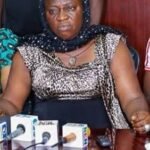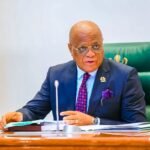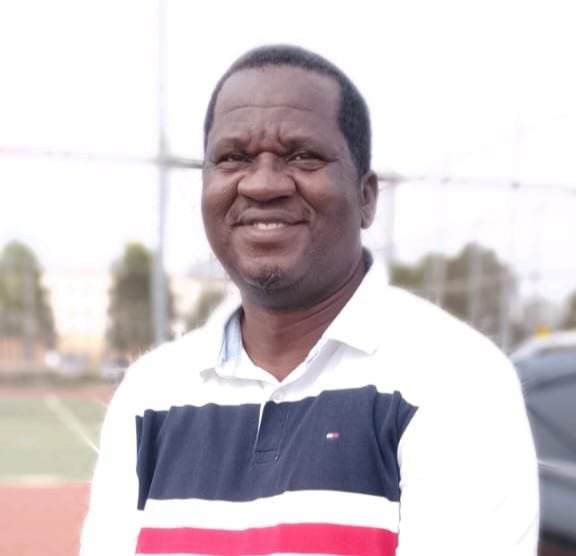By Moshood Alawiye
In Nigeria, debates on lesbian, gay, bisexual, transgender, and queer (LGBTQ) issues often begin and end with legality. When the Same-Sex Marriage (Prohibition) Act (SSMPA) was signed into law in January 2014, headlines in Nigeria’s major dailies screamed “Gay Marriage Now a Crime,” “10-Year Jail for Same-Sex Unions,” and “Nigeria Bans Homosexuality.” Yet most of these headlines misrepresented the law. The SSMPA, while indeed prohibiting marriage and civil unions between same-sex partners, also criminalizes a wider set of vaguely defined behaviours: public displays of affection, membership of LGBTQ organizations, and even advocacy.
Beyond the legal framework lies another equally powerful challenge: language. Nigeria’s linguistic diversity—over 500 languages, with Hausa, Yoruba, Igbo, and Pidgin English being most dominant in public communication—shapes how LGBTQ issues are framed, misunderstood, or erased altogether. Terms are mistranslated, cultural categories are collapsed into imported labels, and nuance is lost in sensational reporting. Together, flawed legal structures and geolinguistic gaps produce a media and policy environment that breeds misinformation, fear, and silence. This article explores these two intertwined dimensions: the flaws in Nigerian laws governing LGBTQ realities and the geolinguistic issues that make accurate reporting and understanding nearly impossible.
The SSMPA is best known for banning same-sex marriage, but its scope extends far beyond marriage. Sections 4 and 5 criminalize “public shows of same-sex amorous relationship” and membership or support of LGBTQ associations. These terms are undefined. Does holding hands qualify? Does sharing a house? Could a support group for parents of LGBTQ children be considered a “gay club”? The vagueness of these provisions gives enormous discretionary power to police and fuels sensationalist interpretations in the media.
The SSMPA sits on top of older provisions in Nigeria’s Criminal Code (applicable in the south) and Penal Code (applicable in the north), which criminalize “carnal intercourse against the order of nature.” This phrase, a colonial legacy, is equally vague and has historically been used to prosecute consensual same-sex intimacy. In practice, this means LGBTQ persons in Nigeria can be charged under multiple laws for the same alleged offence.
In 12 northern states, Shari’a penal codes provide yet another layer, prescribing severe punishments for same-sex acts, including death by stoning in some states. Although there is no documented case of a death sentence being carried out, the existence of such provisions reinforces fear and stigma. It also creates a highly polarized national landscape where what is illegal in one region is punishable by death in another.
Arrests under these laws often rely on entrapment, coerced confessions, or mob accusations. Media houses frequently publish names, photographs, and allegations as facts, violating presumption of innocence and exposing individuals to further violence. Because the laws are vague, even non-sexual activities—like organizing a health workshop for men who have sex with men—are criminalized, undermining public health interventions. Nigeria’s most influential newspapers publish primarily in English. Academic studies of LGBTQ coverage overwhelmingly focus on English-language. Yet millions of Nigerians consume their news primarily in Hausa, Yoruba, Igbo, or Pidgin English. When laws like the SSMPA are only available in English, large segments of the population are left to rely on word-of-mouth interpretations, which are often distorted.
In Hausa, the term ƴan daudu historically referred to effeminate men who participated in certain cultural and spiritual roles. Over time, media outlets collapsed this nuanced category into the blanket “homosexual” or “gay,” stripping it of cultural specificity and layering it with criminal connotations. Similar slippages occur in Yoruba, where spiritual traditions recognize gender variance but reporting reduces such expressions to “immorality” under Western categories. Without careful linguistic framing, indigenous understandings are erased, and imported stigmas take root. Few outlets attempt to break down what the SSMPA does and does not criminalize in indigenous languages. Even the phrase “same-sex marriage” misleads audiences into thinking the law only concerns weddings. In rural communities, this gap fuels mob action against people perceived to be LGBTQ, as communities believe they are enforcing “the law” when in fact they are acting on rumor.
BBC Pidgin and a handful of online platforms have shown that Nigerians are eager for plain-language news. Yet Pidgin coverage of LGBTQ issues remains limited, often restricted to international stories rather than local legal analysis. A missed opportunity remains in providing clear, accessible explanations of Nigerian laws in the language many urban Nigerians understand best. Because the SSMPA is framed as a “law-and-order” issue, coverage is dominated by stories of arrests, police raids, and trials. There is minimal reporting on health, human rights, or the lived realities of LGBTQ people. Headlines often sensationalize by invoking “gay marriage,” even when cases have nothing to do with marriage. Reports often cite police statements as unquestioned fact while rarely interviewing those accused or providing legal expert commentary. This one-sided sourcing reinforces official narratives and silences community voices.
Journalists sometimes publish names, photographs, and social media posts of alleged LGBTQ persons, effectively outing them and exposing them to mob violence. This practice ignores global media ethics standards and reflects the lack of editorial guidance on reporting LGBTQ issues in Nigeria. Many Nigerian newspapers have weak archiving systems. Online stories disappear behind broken links or paywalls, making longitudinal research difficult. For a subject as contested as LGBTQ rights, this erasure has long-term consequences: the public record itself becomes fragmented and unreliable.
Research shows that fear of arrest has discouraged men who have sex with men from accessing HIV prevention and treatment services. This undermines Nigeria’s national and global commitments to combating HIV/AIDS. Because laws are vague and poorly translated, communities often take justice into their own hands, leading to mob attacks and public humiliations. Many of these incidents are filmed and circulated online, further entrenching stigma. When laws are so ambiguous that almost any behaviour can be criminalized, they invite abuse by law enforcement. Extortion of suspected LGBTQ persons is widespread, with police threatening prosecution under SSMPA unless bribes are paid.
Geolinguistic differences mean that northern Hausa media often frame LGBTQ issues through a Shari’a lens, while southern English dailies use the SSMPA as reference. This fosters a divided discourse where Nigerians are not even debating the same law, but parallel versions shaped by language and region. Develop simplified explainers of the SSMPA, Criminal Code, Penal Code, and Shari’a provisions in Hausa, Yoruba, Igbo, and Pidgin. These should clarify what the laws say, what they do not say, and what rights citizens retain.
Media houses and NGOs should publish glossaries clarifying cultural categories like ƴan daudu or Ìyá Ṣàngó, distinguishing them from Western categories and explaining why collapsing them into “homosexual” is inaccurate.
Newsrooms should adopt internal policies that forbid outing suspects, mandate the use of expert legal sources, and encourage health and human-rights framing alongside law-and-order angles. Radio and online platforms in Hausa, Yoruba, Igbo, and Pidgin should invest in explainer journalism on LGBTQ issues. Given the dominance of radio in Nigeria, especially in rural areas, such content could significantly reduce misinformation. Civil society and media partners could collaborate to document cases prosecuted under SSMPA and related laws. Publishing outcomes in accessible formats would demystify how the law is applied and reduce rumor-driven reporting.
Nigeria’s LGBTQ debate is entangled not only in politics and religion but in the very words used to describe it. Flawed laws create confusion; flawed translations magnify it. The result is a cycle where public misunderstanding justifies harsh laws, and harsh laws reinforce misunderstanding. Breaking this cycle requires more than legal reform—it requires a deliberate investment in geolinguistic clarity and ethical journalism. In a country as multilingual and diverse as Nigeria, the law does not truly exist until it is understood in the languages people live by. For now, both the law and the language continue to fail Nigeria’s LGBTQ citizens. But with careful reforms in both realms, Nigeria can begin to replace sensationalism with understanding, fear with facts, and silence with dialogue.
Mr. Moshood Alawiye is a lecturer in the Department of International Relations, Hallmark University, Ijebu Itele Ogun State Nigeria.
email address: moshood_alawiye@yahoo.com







